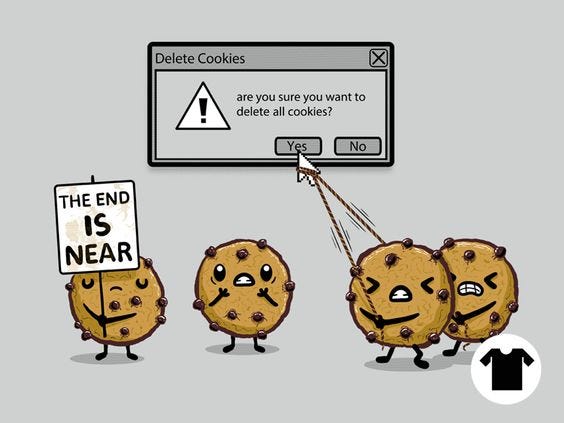
“It is better to risk saving a guilty person than to condemn an innocent one.” — Voltaire
Recent guest on the innovation show Francesca Gino told us a fantastic story about Adriano Olivetti, the son of the Olivetti company founder Camillo Olivetti.
After graduating from college, the son of founder (Camillo Olivetti) Adriano became the company’s general manager in 1932 and its president in 1938. During his tenure as CEO of Olivetti, Adriano’s workers caught a colleague red handed as he left the factory with a stash of equipment. His coworkers denounced the culprit as a thief and demanded that Adriano fire him on the spot. Rather than cast judgement, Adriano asked to speak directly to the worker to understand his side of the story.
When they met, the worker explained that he had an idea to build a new machine, and he needed the equipment to do so. The man explained that he liked to tinker and invent in his spare time, and he fully intended to present his prototype to Adriano when he finished. Adriano gave the man the benefit of the doubt, admiring his dedication to the business. Adriano gave the man all the support he required to build the new machine and even granted him permission to move full time onto this new project.
Not long after, he completed the new electrical calculating machine, the calculator. Olivetti launched the Divisumma electric calculator in 1948, and it became a popular product across the globe and was a lucrative success for Olivetti. Adriano promoted the worker to the position of technical director.
This is a great story of leadership and giving the benefit of the doubt. The sad thing about this story is that it is an exception. Francesca celebrates Adriano in her book entitled “Rebel Talent”, because Adriano’s talent is rebellious and unfortunately not the norm.
This Thursday Thought is about giving the benefit of the doubt by default. I call this “living the benefit of the doubt”.
Taking the Biscuit

“Judging a person does not define who they are. It defines who you are.” — Dr Wayne Dyer
Imagine the scene.
You board the train. You are there early to ensure you get a great seat. You have your coffee ready for the journey. You have downloaded the latest episode of House of Cards. You are ready for a peaceful journey. Beside you on the empty seat, a packet of your favourite biscuits. Bliss.
As the train takes off, a man sits beside you in a very entitled manner. He picks up the biscuits, takes one and munches it down with his cup of tea.
You don’t know where to look, how dare he?
He takes a second.
He takes a third!
You pluck up the courage and grab one yourself.
Looking perturbed, he grabs another one.
Barely finished scoffing down your last one, you inhale another. Crumbs are flying everywhere.
This tit for tat continues until the packet is empty.
Furious, you throw your things into your bag and storm off to find a seat somewhere else.
When you settle in your new seat, you take out your computer and there at the bottom of your bag is your packet of biscuits, unopened.
Oops!
We judge ourselves differently than we judge others. We judge others based on their impact, while we judge ourselves based on our intentions. With undesirable behaviour, we are quick to criticise others. Meanwhile, when we transgress, we defend our behaviour based on circumstances. This behaviour is natural; we stand a better chance of success when we paint ourselves in a favourable light.
International best-selling author and psychologist Daniel Kahneman suggests we have two selves. The first is “the experiencing self”, this is the fast, in-the-moment experiencer. This experiencing self focuses solely on the quality of “experiencing” our life experiences. Meanwhile, the second, the “narrating or remembering self” is a slow and rational thinker, who narrates “the story’ of our experiences after the fact. The narrating self mostly wins out; it often changes in the story, embellishes it and edits it. In an aim of self preservation we always tell the best account to both ourselves and to others. Therefore, we are always in the right, even when we are wrong.
Living the Benefit of the Doubt

The latest episode of the innovation show features the author of ‘Working Whole’, Kourtney Whitehead. Kourtney posits that we should be the star of our own production. However, Kourtney suggests that in the screenplay of our lives, we need to be the writer, the casting director and the director. Kourtney explains how a well-written character evolves during the lifespan of a series. Quality screenwriters skilfully infuse characteristics and beliefs into each character.
If we are to be the authors of our own destiny, we must decide what beliefs we want to uphold and then infuse them into our lives. Self awareness is difficult; it involves catching yourself when we stray off your chosen path. It involves metacognition, which is thinking about thinking and being “aware of one’s awareness”. A great skill to develop is to reserve judgement when we experience undesirable behaviours by others. When this happens, we can heed the great advice of Richard Fagerlin, who featured on episode 119, when he suggested we all have a personal CPA. CPA is a mindset of personal accountability and responsibility. It says that in every undesired behaviour we encounter, we either: Cause the behaviour, Participate in the behaviour or Allow the behaviour.
Starting with ourselves is how we “fix” others and reserving judgement is a powerful first step. When we practise giving others the benefit of the doubt, soon we will live this belief and we will soon be living the benefit of the doubt.
On this week’s Innovation Show, we talk to career expert Kourtney Whitehead. Kourtney will guide you on a self-discovery journey to bridge the gap between your spiritual life and your work and help you bring intention and satisfaction to your professional life. In Working Whole, she shares eight principles that will free you to be inspired and joyful in your life and work callings. She advises that when we commit to living our beliefs in these eight core areas (humility, surrender, discipline, gratitude, connection, love, power and patience), we can work authentically and live fulfilled.
Episode 176 is “Working Whole” with Kourtney Whitehead
Have a listen:
SoundCloud https://lnkd.in/gBbTTuF
Spotify http://spoti.fi/2rXnAF4
iTunes https://apple.co/2gFvFbO
Tunein http://bit.ly/2rRwDad
iHeart http://bit.ly/2E4fhfl
More about Kourtney here: https://simplyservice.org